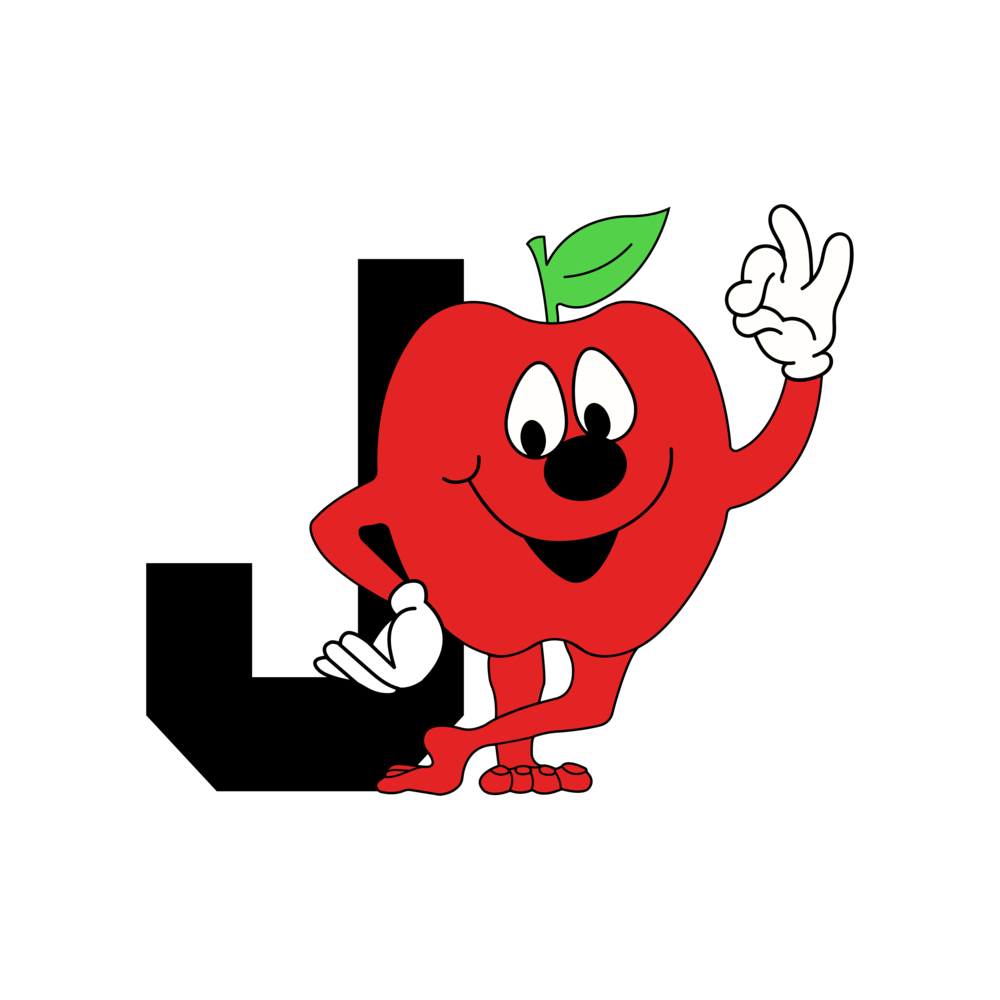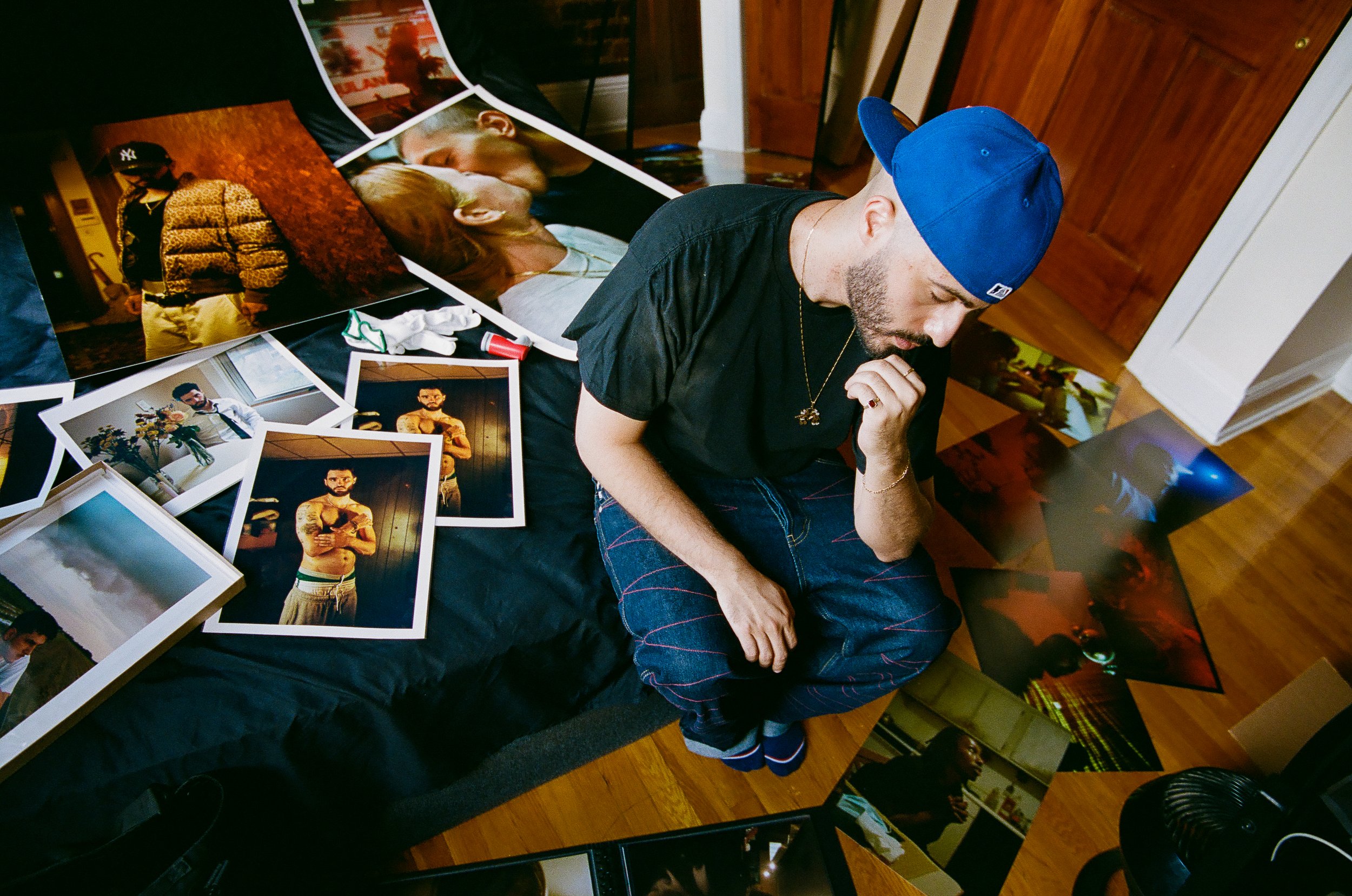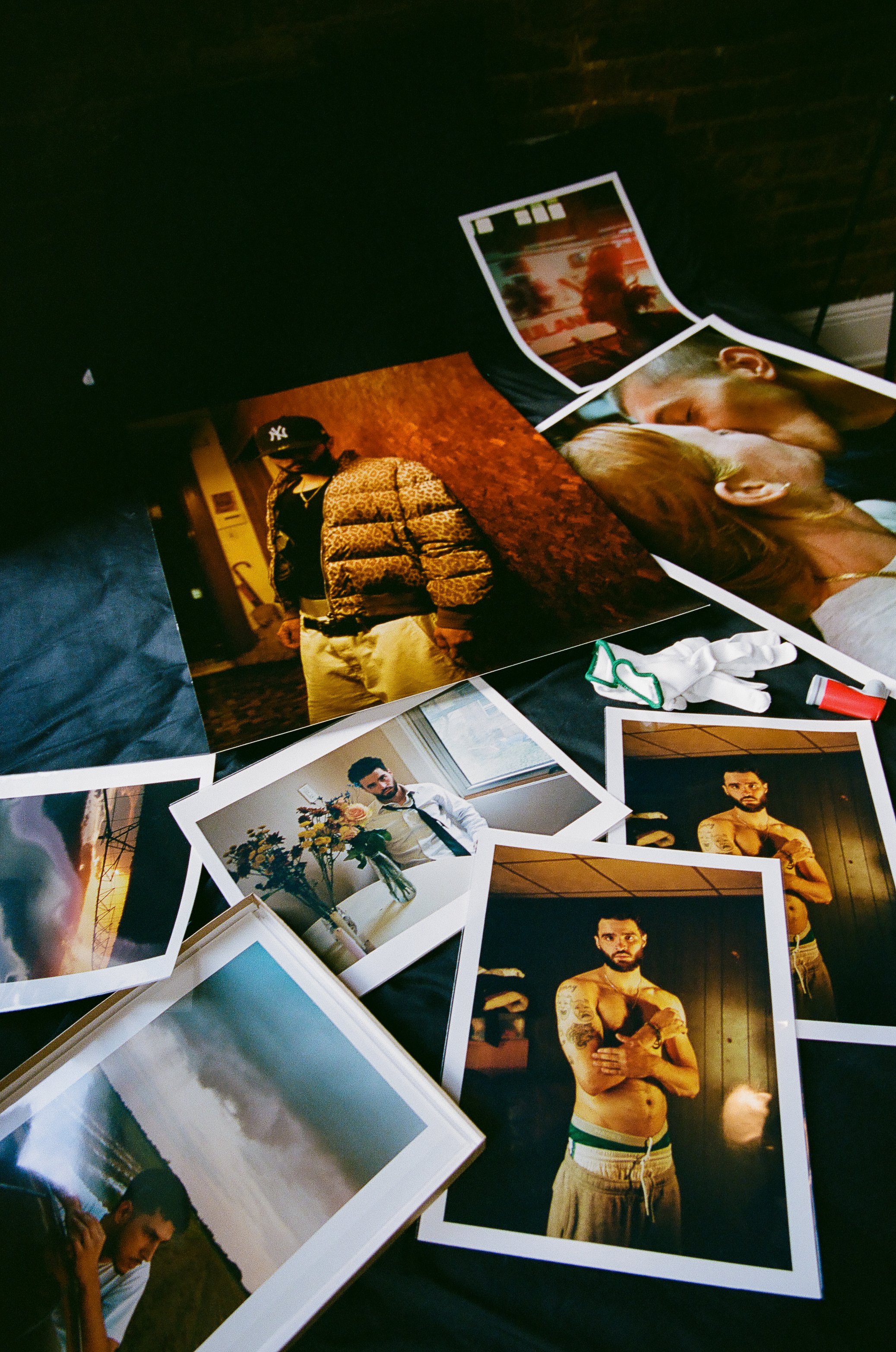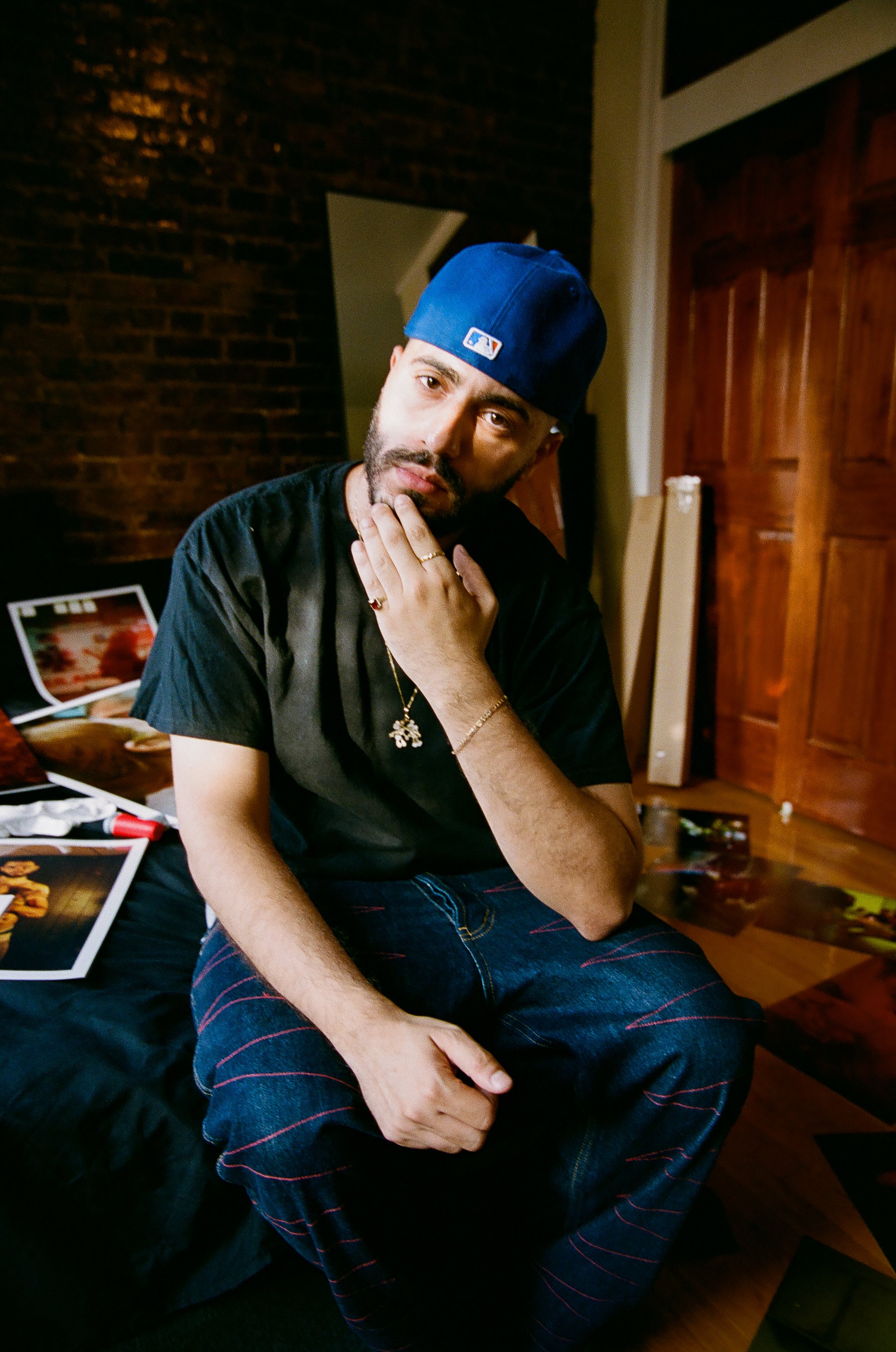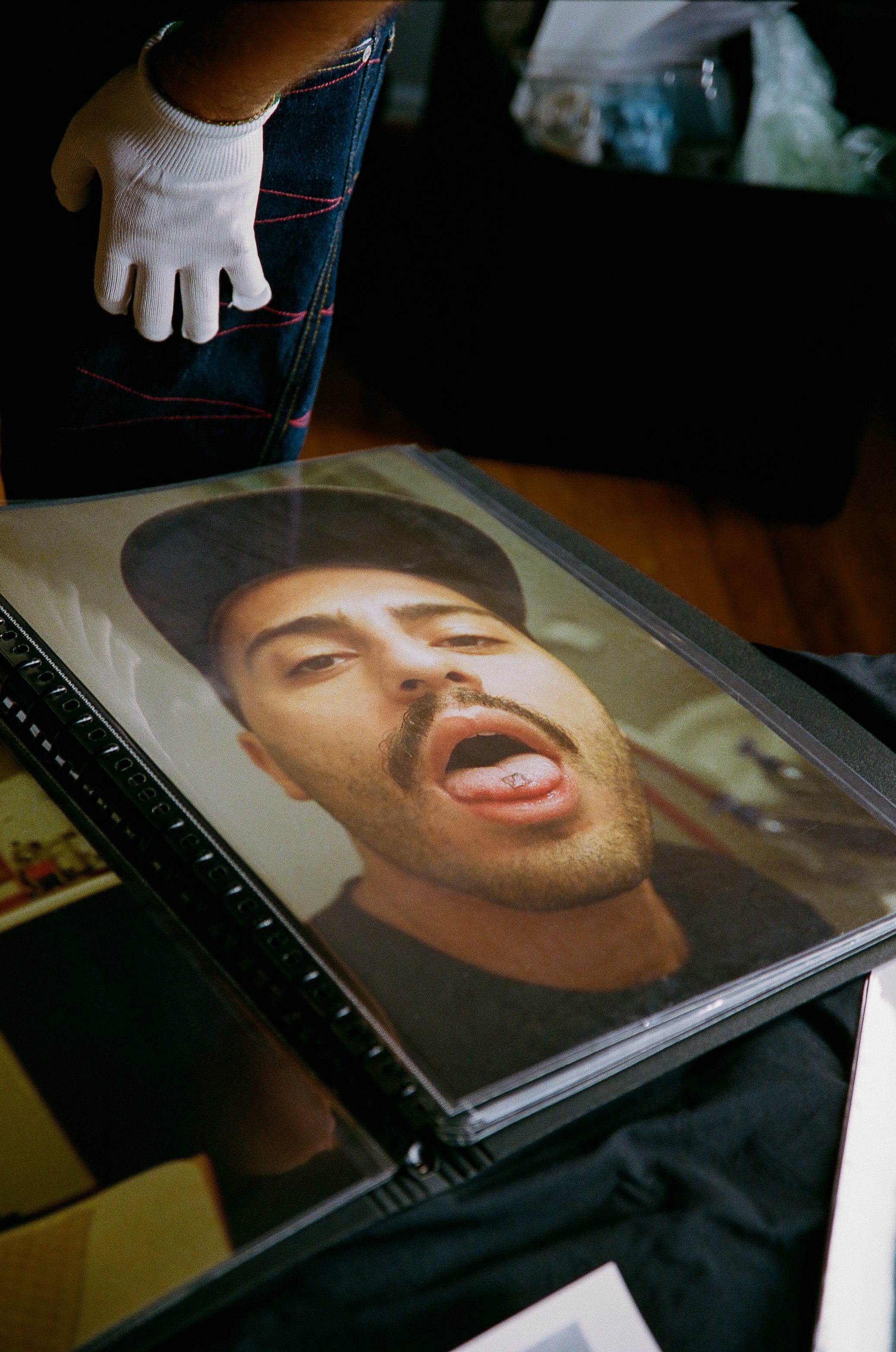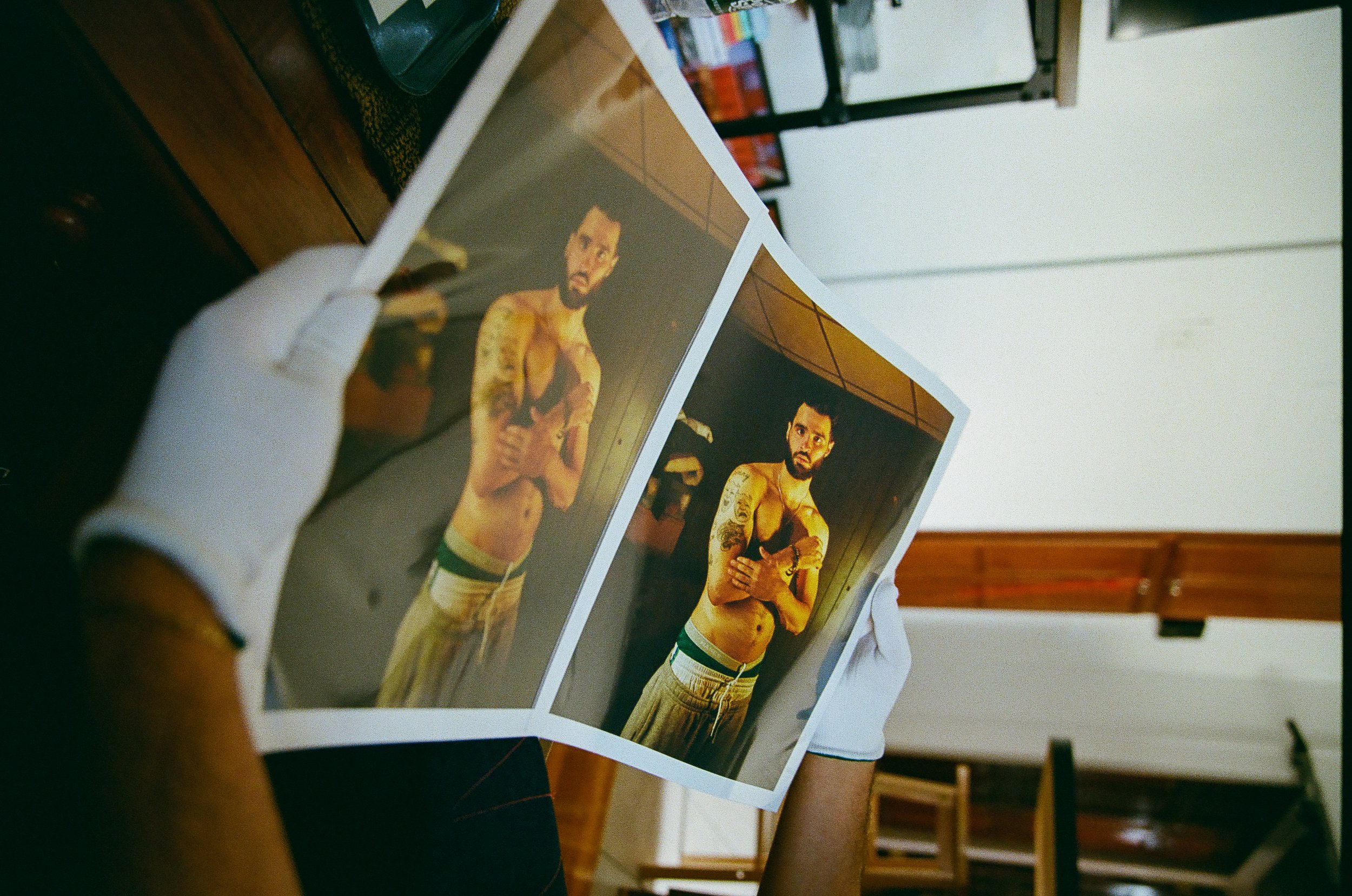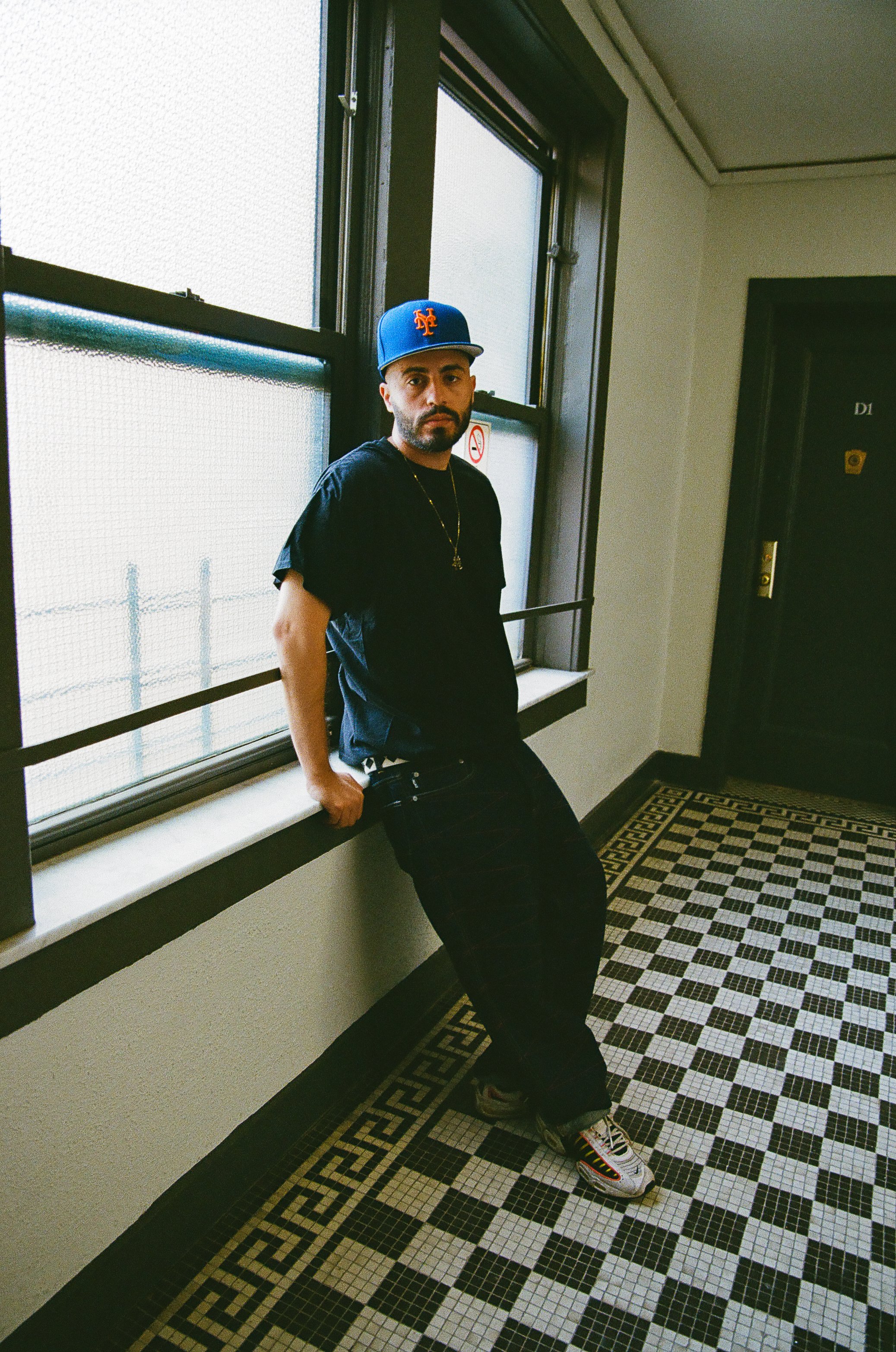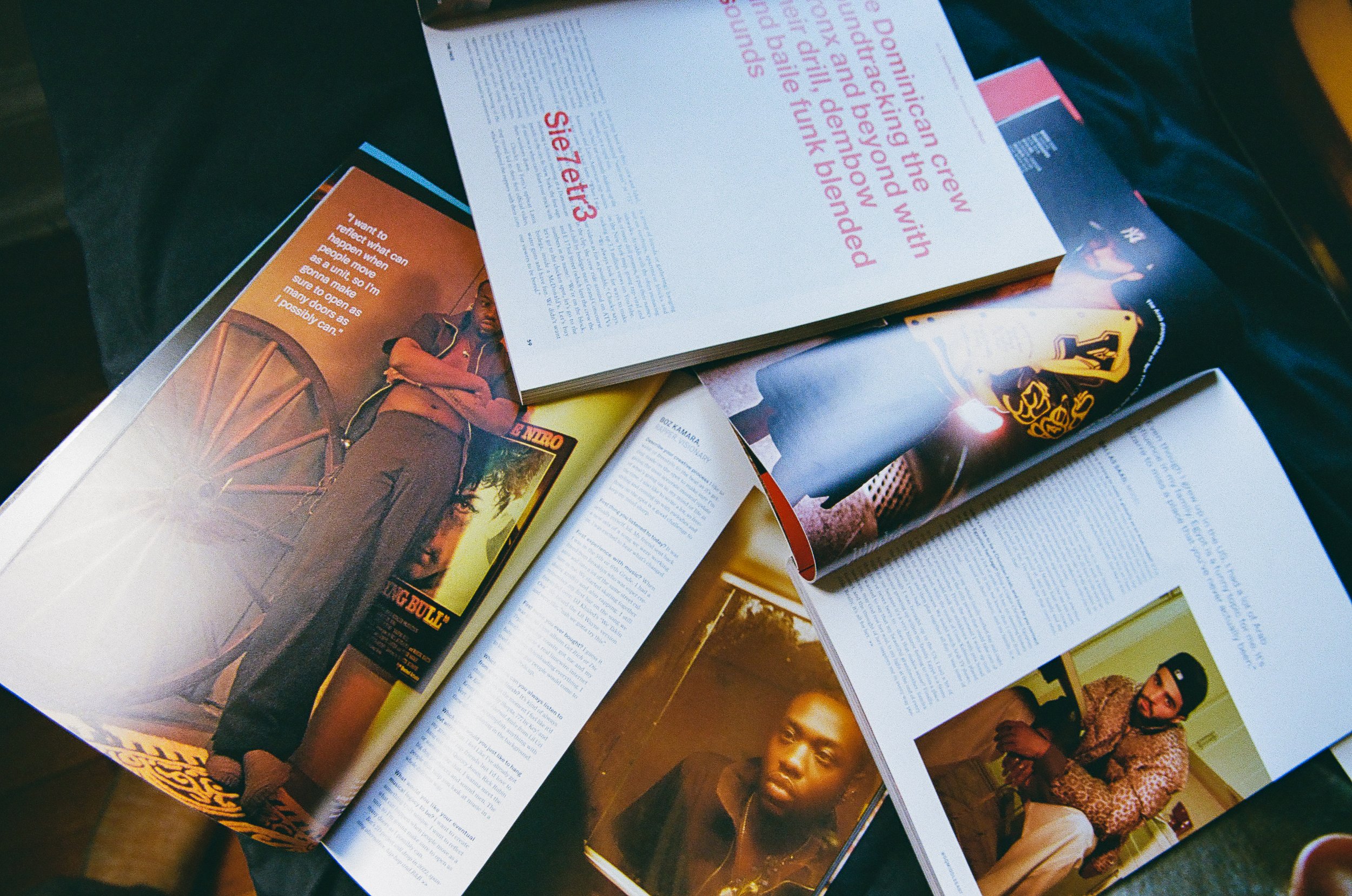Dean Majd is a Palestinian fine artist from Queens, New York. Completely self-taught, Dean has been able to build a stunning body of cohesive yet vastly varying photography. His distinct cinematic, dark, color steeped visual style is instantly recognizable and highly emotive. His subjects are almost exclusively his close friends and loved ones, the connection between him and his subjects is palpable in his imagery. His body of work spans from fashion editorial, streetwear, documentary, and narrative collections - all with a fine art lens. The artistic sensibility and intention is evident after a short glance at his approach and output. He recently had his main series Hard Feelings debut by the Aperture Foundation, gave a lecture at Pratt University, photographed two print editorials featuring the new generation of Arab artists & musicians for GQ Middle East, and continues to build his body of both editorial and personal work.
Dean's mother gave him his first camera at 7 years old to take photos of his friends at the park. Since that moment he has always had a camera in his hands. His first photography subjects were his middle school friends who were doing graffiti, partying, going to concerts, and sneaking into bars and clubs. These themes continued throughout the years. Dean collected art DVD’s; he found KIDS and Irreversible at a Blockbuster which introduced him to Larry Clark and Gaspar Noe’s works, respectfully. When he started college he discovered The Ballad of Sexual Dependency by Nan Goldin. These works were the first to influence Dean’s artistic expression and approach towards photography. Switching mediums from digital to film also had a huge impact on how he approached his work. His personal style strengthened and was formed around Dean’s practice of photographing at night. He never had a point where he discovered that he wanted to be a photographer. This has always been what he wanted to do. The camera was put in his hand and he never stopped.
Dean and I met through friends in 2016. When we began getting closer and seeing each other more frequently, I would see Dean photograph our friend group intensely and almost constantly. The relationship, trust, and support between him and his peers was evident. We all believe that his mission has meaning. Dean has been taking photos of me since we met. To see Dean’s process, know his struggles and sacrifices for his practice, and watch this body of work take form has been insanely impressive. These photos are a part of Dean’s series, Hard Feelings, which through years has evolved into a body of work with more and more depth and meaning. For years Dean knew he was making work about the human condition and what it is to be young, alive and in New York. He set out to photograph people at their most candid and uninhibited moments. Through the process the meanings and narrative got deeper and deeper. In 2016, Dean approached all of his subjects and they agreed to have their photos taken nonstop. “I'm going to photograph every aspect of your life, all the good stuff, all the bad stuff, when you're angry, when you're sad, when you're happy, everything, when you're drunk, when you're high, everything.” No one said no. Dean was shooting 300 rolls a year, everything documented, dated and archived perfectly. The concise curating in the final presentation of the series embodies what it was to be young & troubled in New York. This series is still being formed to this day. Dean stays dedicated to building this body of work, integrating new subjects & stories.
Dean’s Palestinian heritage is a vital aspect of his exploration of the human condition, although he refuses to make work directly about identity. AnOther Magazine and ItsNiceThat published his series Separation on the Palestinian Diaspora, centering around his family. “The series is a life-affirming documentation of our existence as people.” The series is composed of intimate portraits of his family and the settings he found himself in. These images oppose the typical ideas of how people may interpret Palestine. He’s now developing a body of work drawing from his experiences growing up in New York, a layered exploration of the Arab-American dichotomy. His approach is now more formal, more composed and thought out, while still leaving room for candid and spontaneous moments. His work and his eye are now even more fine art focused than before.
